My house was near the road but it was also lonely. At night, my father often kept the lamp on for about an hour to grade his students' papers. Every day, after school, he went into the forest to collect firewood, scooped shrimp from the stream, planted potatoes and corn on the hill, and practiced a flute song called "Drifting Water Fern and Drifting Clouds".
At night, around the circle of light from the kerosene lamp that smelled of burning oil, my father graded papers, my mother sat knitting. The yarn collected from old shirts was broken continuously. Ha slept on my mother's lap, I took out a pencil to draw right next to my father. A steady rhythm of life around the rare but cozy light. The days just passed by...
One day, I had a fever so I stayed home from school alone. Mom took Ha to the store, Dad went to work. Because I was afraid of the dark corners of the house, I just hung around in the yard. Suddenly a stranger appeared. Seeing me, he reached his hand through the wooden bars of the gate and called inside:
- Hey kid, is this Mr. Binh's house?
I was scared because this person looked like a person who had been dressed in a shabby way, with many scars on his arms and legs like someone who had come back from the gold mines or lumberjacks. I had heard my father talk about a man named Man in the Nam Pu forest. Man was very reluctant to go down the mountain. One time, when he was recruiting students, my father met him and promised to take Man's son down to town to study and become a good person. But then my father himself drifted to this remote area. I don't know why, but Chien - Man's son, still found my house.
My father asked cautiously:
- So why did you go panning for gold after finishing 5th grade?
- I can't do anything when I'm hungry. I went with people to pan for gold, enough for my father to buy rice for three years. Now I'm asking you for letters.
My father took out the lamp that was carefully hidden under the cupboard and lit it up. He usually lit this lamp when there was an important event. Then he conveniently grabbed a pair of scissors and cut off Chiến’s messy hair. My mother boiled some herbal water and urged him to take a bath.
The next morning, seeing him wearing my father's old clothes, white plastic sandals, carrying an old leather bag following my father to school, he no longer looked like a worldly man.
Since he appeared, my house has changed a lot. The porch was covered with planks and extended into a classroom. Every afternoon, he went up the hill to dig the soil to plant more beans, corn... But before the trees bore fruit, my rice bin was empty. Chiến ate as much as a farmer but he often daydreamed. I heard that in Math class, he forgot all the formulas from primary school but he sat down to write a letter to a girl very well. My father said he didn't know what he would do in the future...
Then suddenly, gunshots rang out on the border battlefield that spring. That afternoon, my father ran back, out of breath: “Where is Chien? Is he home?” My mother shook her head and looked to the other side of the mountain where there was a winding path leading to the district. Chien had volunteered to go to war. He just left like that, leaving behind his books and many questions.
MH: VO VAN |
The news of Chien's death came before the letter he sent to my family. In his room, which was covered with wooden boards, the furniture was quite neat, the only thing he left behind was the pine box he had brought with him since coming to my house, which was always locked.
Many years after the war ended, life returned to peace. I returned to university and stayed in Hanoi to work.
My parents grew older over the years. Each finger slowed down, my mother wore glasses and knitted each thread of wool as if she wanted to hold on to each moment of life. There were no more connections, each thread of wool was smooth and endless. One day, my father stopped tutoring the children. They rode their bicycles on the concrete road to the young teacher's house to practice exam questions. The old teacher took out his bamboo flute and played the song "Drifting Water Fern and Drifting Clouds" so that the baby birds that had fallen from their nests in the backyard after a storm could practice chirping.
My parents told the story of eating cassava and yam in the past, making the children laugh with delight. The children, who had eaten delicious and strange foods enough, now liked the dishes of poor families.
In the afternoon with the children, I carried a hoe up the hill to dig for sweet potato sprouts. After a long time of not working, sweat was pouring out, and I was panting through my ears. Suddenly, I hit something and the hoe blade popped out. It was a tightly sealed plastic bag, and it seemed that the rain and sun had not penetrated inside. I carefully opened it, and inside was a rusted copper key. I brought it home, quietly soaked it in oil, and cleaned off the oxidation. The saw teeth appeared like a puzzle challenging my brain.
Was this key someone’s forgetfulness, concealment, or trickery? I began to curiously try every lock in the house but to no avail. I gave up my curiosity and retold old stories to restore my brain, which had gradually lost the traces of my father. Now before me stood a senile, gray-haired, irritable old man.
Suddenly, my father said:
- Why doesn't anyone open Chien's box?
He often had that way of speaking. He always asked vague questions about “who” but actually wanted to express his intention. I tried to take out the key to open the lock, but it was still there. My father pondered for a moment and then reminded:
- Don't dig too deep, leave a piece, rotate and see.
The sound of the lock clicked. Inside the box were yellowed notebooks, a Truong Son fountain pen with dried ink, and a few souvenirs. I gently opened the letter folded in the style of a bird's wing from an envelope made of gilt paper. In the letter, Chien wrote: "I don't know what war is like yet, but I'm determined not to be afraid of the most dangerous and fierce places. I want to join the army, I have to go to the most fiercely contested places so that even if I die, it will be worthy of the land I was born in. My hometown behind Nam Pu forest has a stream that flows all year round and never runs out of water. I believe that after three years if I don't come back, you will open this box because you are a child. Come back with me to my hometown to see how my father is doing, where my house is..."
I was speechless. My father asked but I did not say anything. It was twenty years now, twenty years after the war, not a short time. What use would it be to say anything? In each unsent letter, Chiến wrote to his mother who had gone far away, to his paralyzed friend who he brought stream fish and lessons to every day. A blind old woman listened to him talk about flowers. A vendor at the market who had lost her child kept mistaking him for a lost son who had returned...
I followed a relative in the small hamlet at the foot of Nam Pu uphill. Chien’s father’s grave was right on the hillside. Next to it was his own grave. “Actually, it was built to ease the pain, there are no bones. Where Chien is now, his comrades have not found him yet” - the relative told me. I also believe that wherever he lies, to him it is still his homeland.
BUI VIET PHUONG
RELATED NEWS:
Source: https://baoquangngai.vn/van-hoa/van-hoc/202503/truyen-ngan-chiec-hom-go-thong-72a180b/


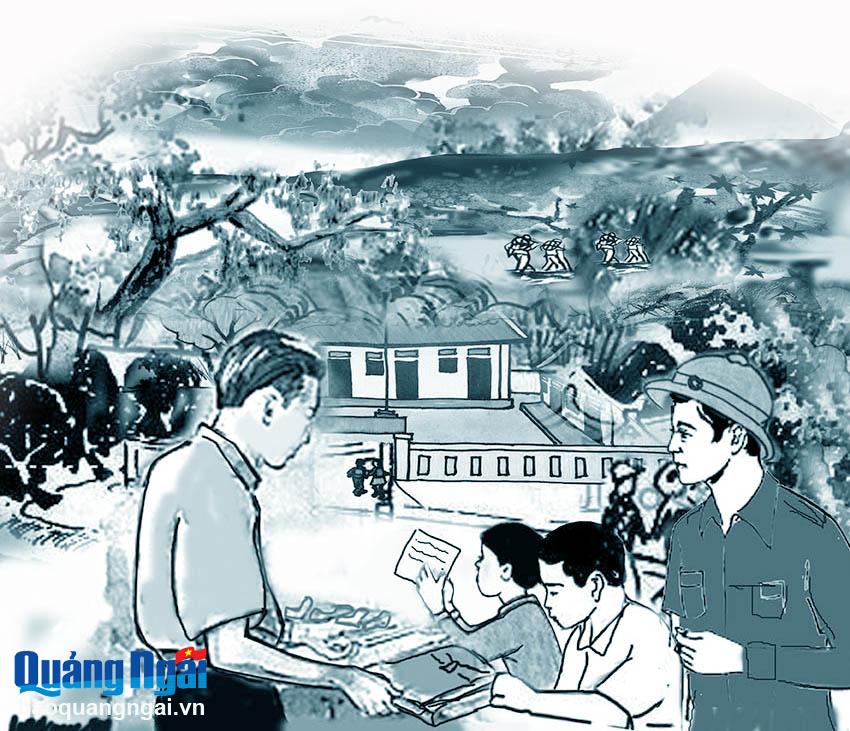


![[Photo] Vice President Vo Thi Anh Xuan, French President Emmanuel Macron and his wife visit Hanoi University of Science and Technology](https://vphoto.vietnam.vn/thumb/1200x675/vietnam/resource/IMAGE/2025/5/27/267b6f2bdf3e46439f081b49f6ec26b1)
![[Photo] Hungarian President begins official visit to Vietnam](https://vphoto.vietnam.vn/thumb/1200x675/vietnam/resource/IMAGE/2025/5/27/ab75a654c6934572a4f1a566ac63ce82)


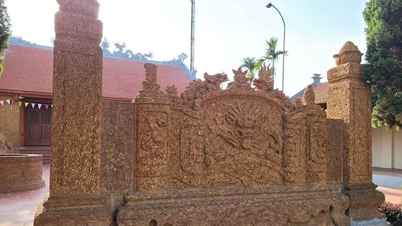





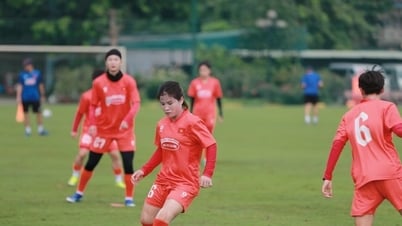
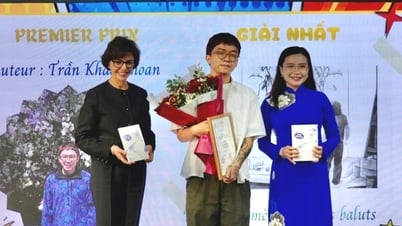







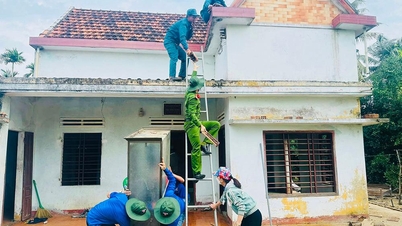
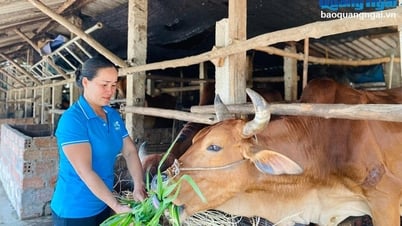
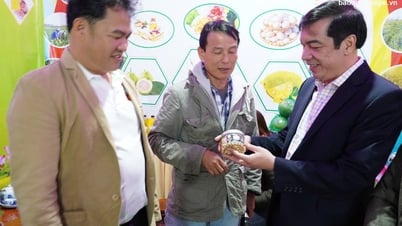
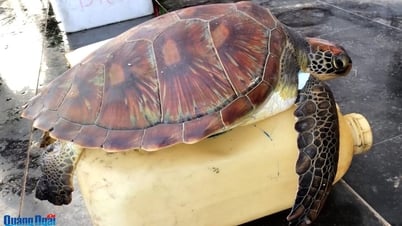


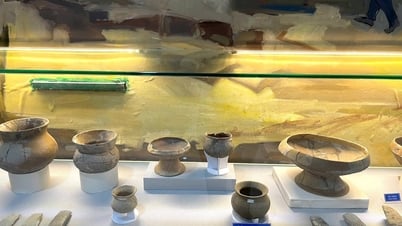

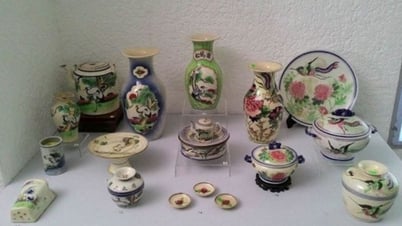

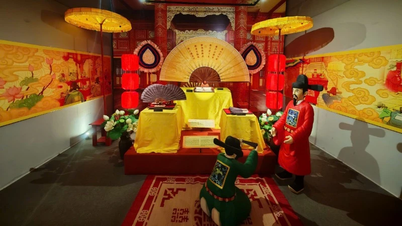

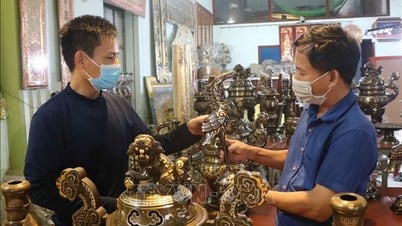


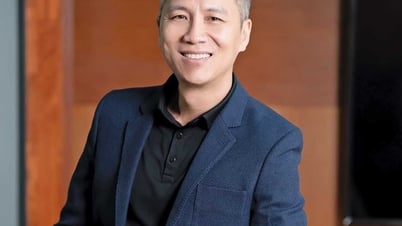

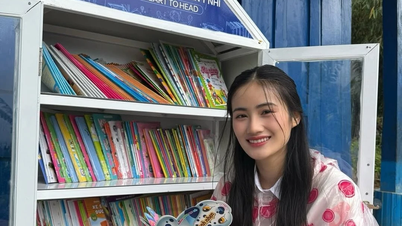

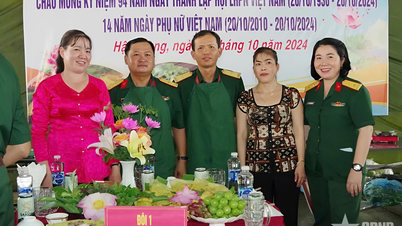
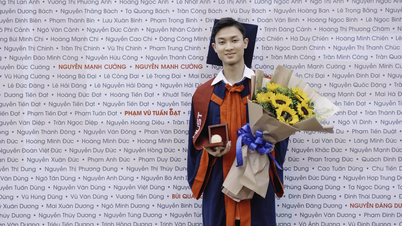

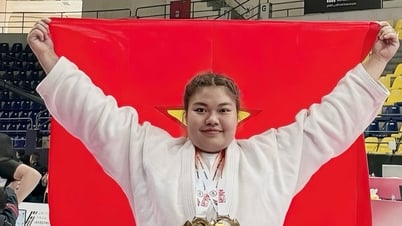








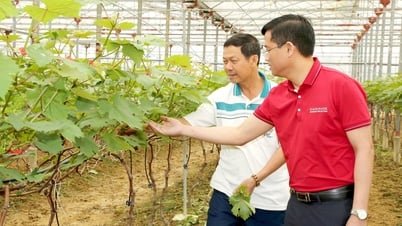


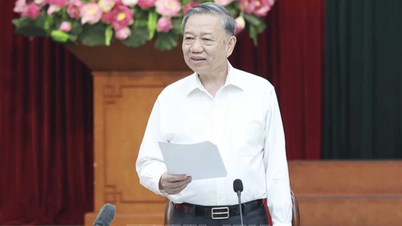





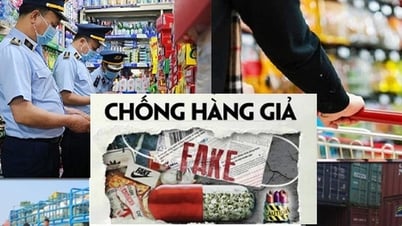








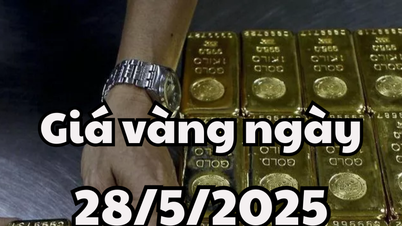







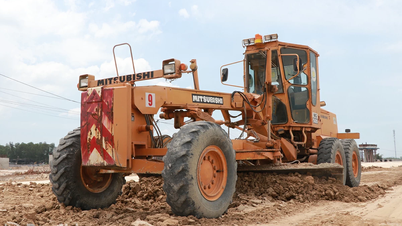

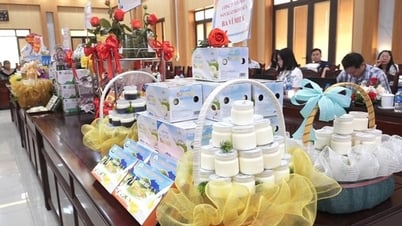




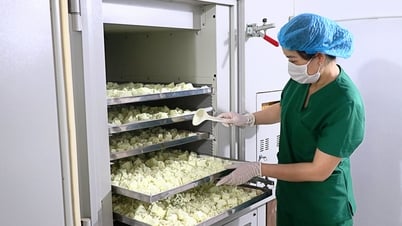

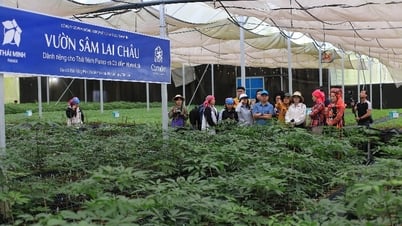

Comment (0)